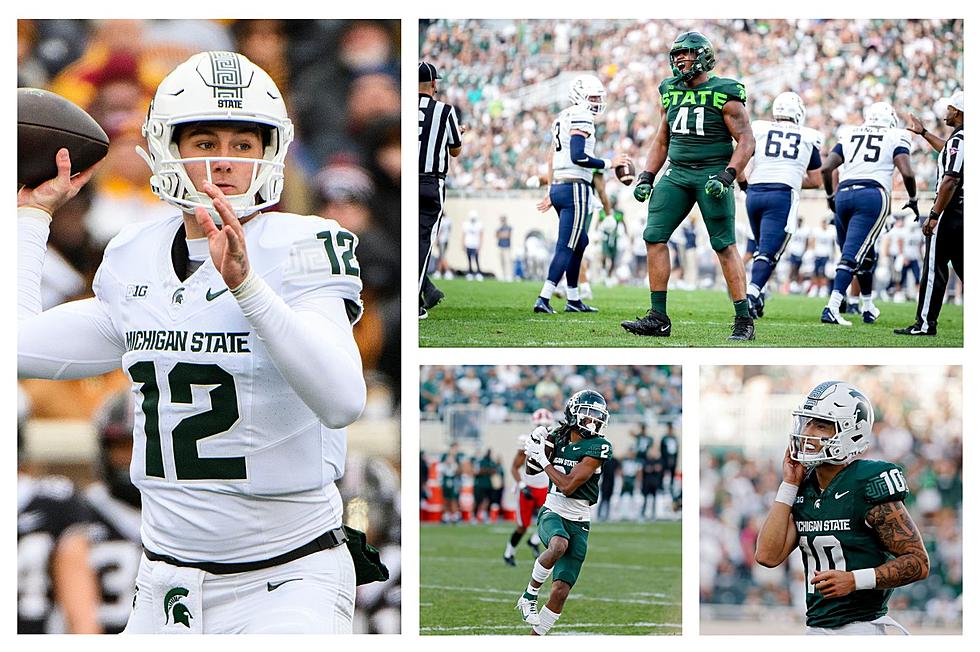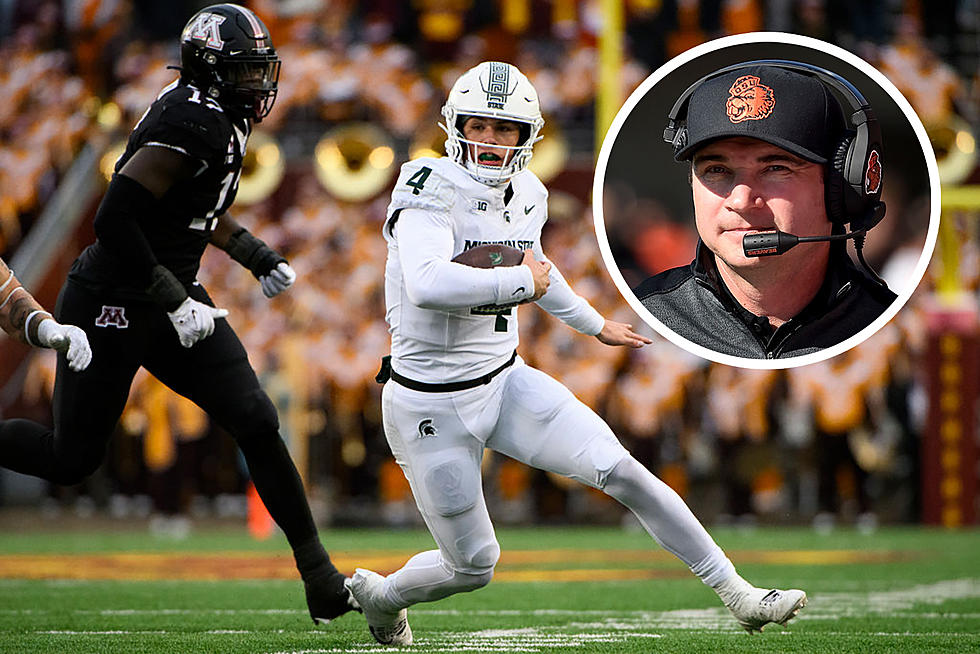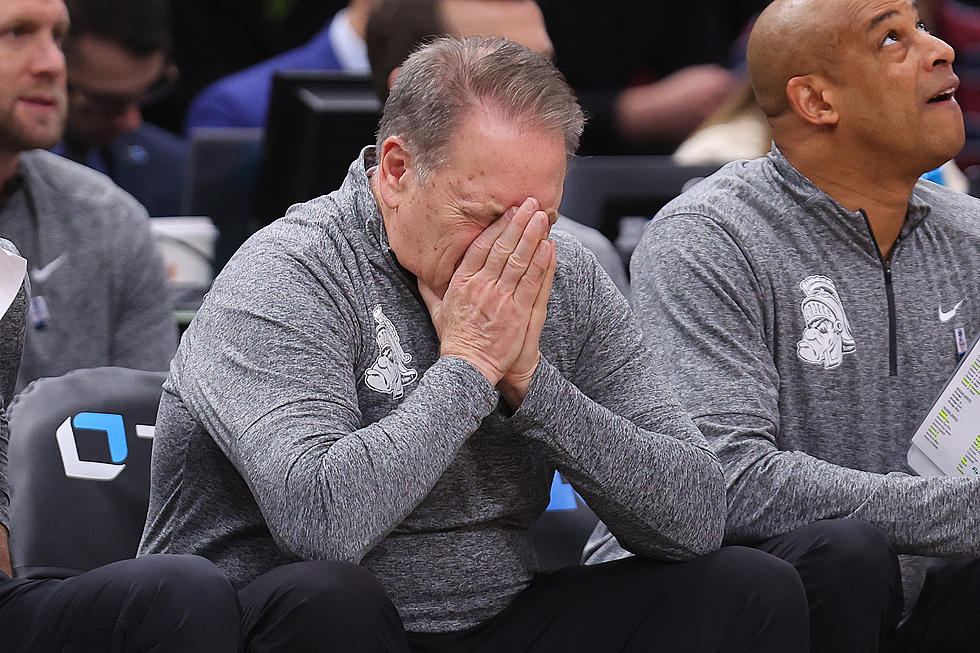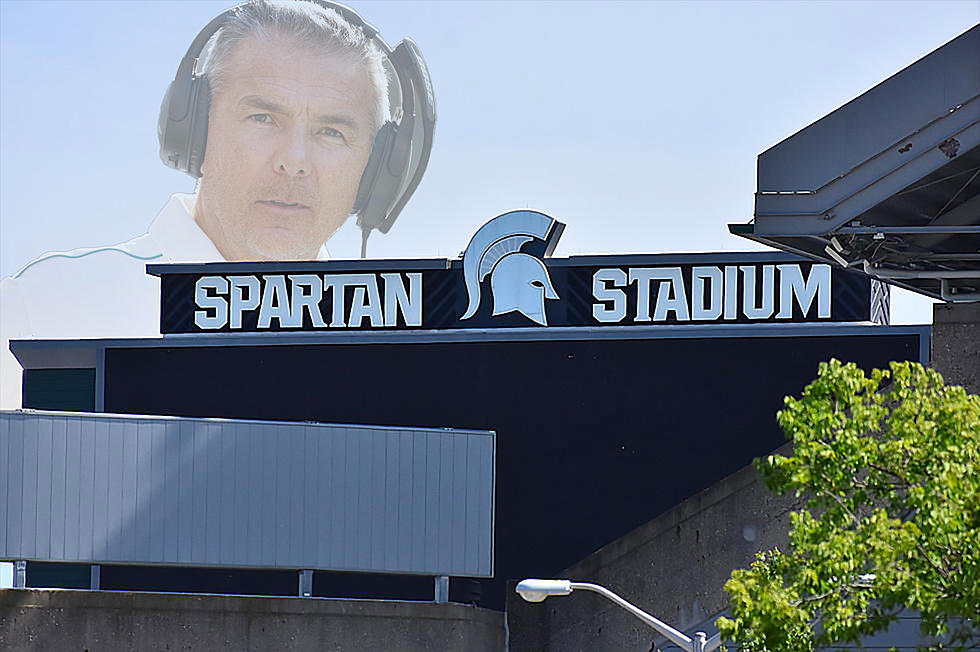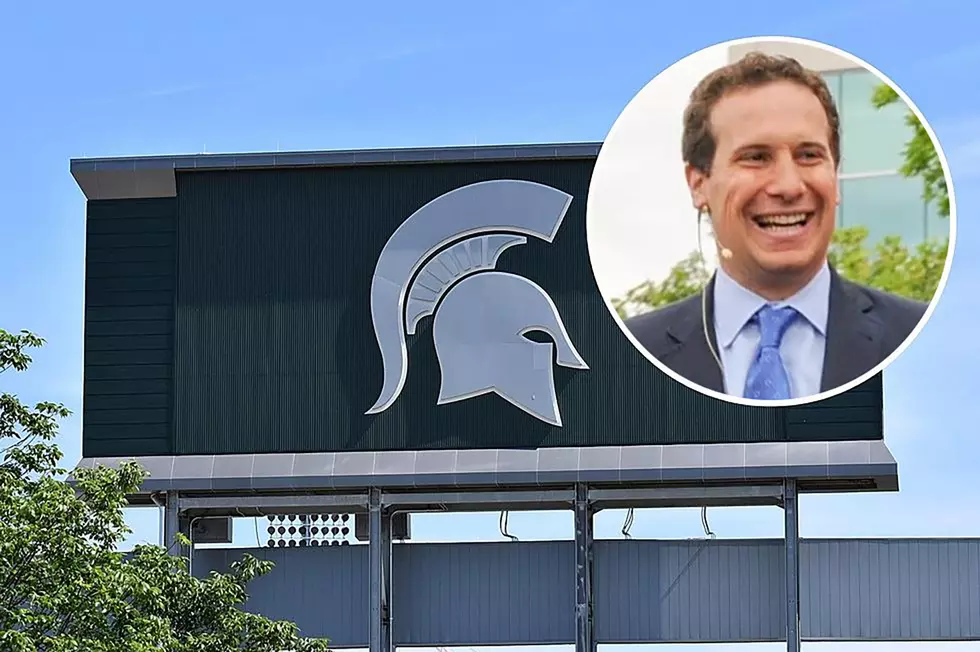
What Mat Ishbia’s Losing Bid For Denver Broncos Means For Michigan State
Billionaire MSU alum and benefactor Mat Ishbia has reportedly lost out on his bid to buy the Denver Broncos.
Ishbia, president and CEO of Troy-based United Wholesale Mortgage, had put together a bidding group with his brother and Alec Gores, the brother of Pistons owner and fellow MSU alum Tom Gores. Theirs and other offers were dwarfed by that of Rob Walton, one of the Walmart heirs, who's buying the Broncos for a reported $4.5 billion. It's the most ever spent to acquire a sports franchise, according to Forbes.

Ishbia, who was a walk-on point guard for Tom Izzo's 2000 national championship-winning Spartan basketball team, has amassed a reported fortune north of $8 billion as the president and CEO of United Wholesale Mortgage. He's been in the news recently for large donations to MSU, including a $32 million gift in 2021 to help fund new football and basketball facilities. Ishbia is also reportedly one of two private donors fully funding Spartan football coach Mel Tucker's 10-year, $95 million contract extension.
Many in the Michigan State community felt a sense of relief once news of Ishbia's failed Broncos bid broke, as they thought Ishbia's ownership of a professional sports franchise could divert some of his bandwidth and funds away from MSU.
But don't get too comfortable.
Billionaires Usually Get What They Want
Ishbia was outbid for the Broncos by a man worth eight times more and whose family is worth a quarter-trillion dollars. But that doesn't mean Ishbia can't still own a pro sports team. When your net worth is in the 10-figure range, you're not used to losing bids.
Translation: Ishbia is going to own a franchise eventually. It may not be this year, but he has the resources to purchase and operate a professional sports team. And we know he has the ambition.
Will It Be In Detroit?
It's an open secret in Michigan that Ishbia wants to buy the Detroit Lions. The problem is that they're not for sale. Ishbia would have better odds of prying away the auto empire from the Fords before they sell their money-printing plaything of a sports franchise.
So how about the other three pro sports franchises in the Motor City? We know the Illitch family loves the Red Wings, so they're probably off the table. And there's nothing out there to suggest that the other two Detroit franchises are available.
However, there have been rumblings that Chris Illitch isn't as passionate about the Tigers as his father was. And Pistons fans have long criticized Tom Gores for not caring — or showing up — enough.
Something to keep in mind is that many billionaires acquire significant wealth by purchasing distressed assets, right-sizing them, rehabilitating them until they're profitable once again, then flipping them for a significant return. This could be particularly true in the case of Gores and the Pistons.
Gores paid $325 million when he bought the Pistons in 2011. Now, Forbes values the franchise at $1.45 billion. That's about a 350 percent increase in value.
Ishbia is a basketball guy, of course. If what fans suspect about Gores is true and he's not incredibly attached to the franchise, perhaps Ishbia could wrest the franchise away from him for $2 billion?
But remember that Ishbia just made a serious offer for a pro sports franchise about 1,300 miles away from Detroit. Geography isn't a real limitation here, so whichever major pro sports franchise is next available may be the one Ishbia eventually buys.
What Does It All Mean For MSU?
For now, it's good news for Michigan State. Without a sports franchise in his portfolio, Ishbia ought to have plenty of time and money to continue devoting to his alma mater, whether it's in the form of donations or lucrative NIL deals.
And, if he so wishes, Ishbia could purchase even more influence and power over MSU athletics by increasing his contributions. He could become at Michigan State what T. Boone Pickens was at Oklahoma State. Ishbia might have lost out on a pro sports franchise, but he could effectively buy a Big Ten athletic department.
But he's a billionaire, and he didn't get to that level of wealth by not making shrewd business decisions. As much as he may love Michigan State, essentially owning Spartan athletics doesn't generate revenue for him. Owning an NFL franchise, however, is an investment that yields billions of dollars within just a matter of years.
You can bet that eventually Ishbia will get what he wants. Sooner or later, he will own at least a stake in a pro sports franchise, and when that day comes it will likely be at the expense of his time and money for Michigan State.
Don't worry, though — MSU has three other billionaires it can lean on for funding.
Detroit's Pro Sports Franchises Ranked By Value
Candidates for Big Ten Expansion
More From The Game 730 WVFN-AM
